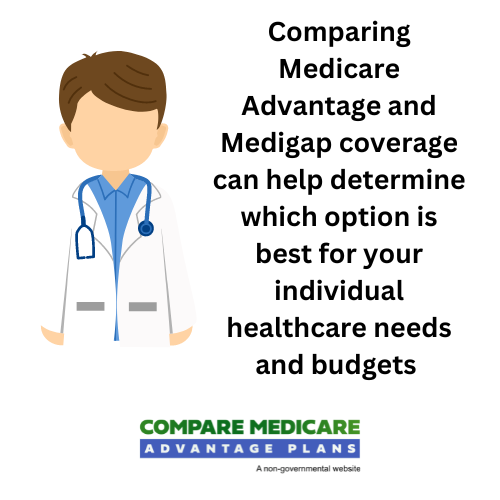Are Medicare Advantage Plans Too Good to Be True?
Medicare Advantage plans that might offer zero-dollar premiums may seem too good to be true. Navigating the world of healthcare insurance might be challenging, especially when it comes to understanding the potential costs and benefits of these plans.
This article will demystify the zero-dollar premium and address whether Medicare Advantage plans are too good to be true or not. It’ll also explore the potential provider network limitations, examine prescription drug coverage, and compare the possible benefits to out-of-pocket expenses.
By the end, you’ll likely have a better understanding of whether Medicare Advantage plans are the right choice for you.
Key Takeaways
- Some of the Medicare Advantage plans may seem attractive due to their “zero-dollar premium”, but enrollees should also be aware of possible hidden costs and potential provider network limitations.
- Certain Medigap policies may provide additional coverage for Original Medicare, which could enable individuals to reduce out-of-pocket expenses while accessing unrestricted care.
- When selecting a plan, it is important to consider individual health needs, budgets, and preferences to make an informed decision that could meet personal requirements.
Compare Plans in 1 Step!
Enter Zip Code
Decoding the Zero-Dollar Premium Mystery
Certain Medicare Advantage plans may boast zero-dollar monthly premiums, potentially making them an attractive option for budget-conscious beneficiaries.
However, members must understand that these plans might not be entirely free. Some plans might come with hidden costs, like deductibles and copayments, which could add up quickly and potentially impact your overall healthcare expenses.

The Truth Behind No-Cost Plans
Some of the Zero-dollar premium Medicare Advantage plans likely exist due to Medicare paying private companies to assume the health risks of beneficiaries. This subsidy could potentially allow insurance carriers to offer low or even no-cost monthly premium plans.
Moreover, delaying enrollment in Part B when first eligible might have costly consequences. A monthly penalty may be applied for the lifetime of the plan, and the penalty amount could increase with the length of time taken to enroll.
Hence, it becomes important to balance the potential benefits of zero-dollar premium plans against the possible hidden costs.
Hidden Costs in the Fine Print
While zero-dollar premium plans may seem very appealing, it’s important to scrutinize the fine print for hidden costs that might escalate quickly. Some of these costs may include deductibles, copayments, and coinsurance.
Deductibles are the amount you pay for eligible medical services before your plan begins to share the cost. Copayments are predetermined amounts you pay for specific services, while coinsurance is a percentage of the total cost that you are responsible for paying.
Copayments and coinsurance can accumulate rapidly, particularly if you require frequent medical services or treatments. Additionally, there might be a yearly deductible that must be met before the plan begins covering costs.
Evaluating Possible Provider Network Limitations
Certain Medicare Advantage plans might feature limited provider networks, which could potentially restrict access to care and possibly lead to higher out-of-pocket costs for out-of-network services.
A provider network is a collective of doctors, hospitals, and other healthcare providers that have agreed to render services to plan members at prearranged rates.

The size and stipulations of these networks may vary and could impact your ability to access the care you need.
In-network vs. Out-of-Network Care
In-network providers may be essential for certain cost savings in some of the Medicare Advantage plans, as they may have agreements with the health insurance plan that could offer services at predetermined rates.
However, limited provider networks might create challenges, such as traveling long distances to access care or receiving suboptimal care from available providers.
On the other hand, seeking care from an out-of-network provider may result in increased expenses. Therefore, it becomes imperative to thoughtfully consider the provider network when selecting a Medicare Advantage plan.
Prescription Drug Coverage Under Scrutiny
Prescription drug coverage in certain Medicare Advantage plans might be affected by formulary changes, which could potentially impact both the availability and possible costs of prescription drugs for plan members.
Formulary changes may include adding or removing drugs from the list of covered medications, as well as altering the tier placement of drugs, and implementing certain restrictions on coverage.

The Impact of Formulary Changes
Some of the formulary changes in Medicare Advantage plans could potentially limit access to needed medications and may even increase expenses for beneficiaries, compared to traditional Medicare. These changes will likely be subject to CMS authorization and require a 30-day prior notification to impacted beneficiaries.
Consequently, it’s important to stay on top of potential alterations to your plan’s formulary and be ready to switch medications if required.
The Reality of Additional Benefits
- Vision coverage
- Hearing coverage
- Dental coverage
To understand how medicare advantage plans work, it’s important to research the potential offerings of each plan.
However, some of these extra benefits might not always outweigh the potential out-of-pocket costs associated with the plan.
A comparison of the potential costs and benefits of Medicare Advantage plans could be pivotal in deciding if the plan is genuinely cost-effective for your healthcare requirements.
Comparing Extras to Out-of-Pocket Expenses
When juxtaposing some of the potential benefits of Medicare Advantage plans in 2025 with potential out-of-pocket expenses, it’s important to consider aspects such as provider networks and the possible inclusion of prescription drug coverage.

Additionally, it may be important to weigh the convenience of having all healthcare needs covered under one plan against the potential limitations and costs that may be associated with Medicare Advantage.
Flexibility and Freedom: A Closer Look
A majority of Medicare Advantage plans might limit flexibility and freedom when it comes to changing plans or accessing care while traveling.
For example, coverage may not follow you if you travel outside of your plan’s service area. Additionally, changing plans could be complicated, and may limit your ability to enroll in a Medigap plan later on.
Possible Complications of Changing Plans
Changing plans in Medicare Advantage may be complicated, as it will likely involve navigating rejections of claims and dealing with hidden risks for those with serious medical conditions.
Additionally, switching to a Medigap plan after leaving a Medicare Advantage plan may be subject to medical underwriting, potentially leading to denied coverage or higher premiums based on health conditions.
This could underline the importance of meticulously analyzing the limitations of Medicare Advantage plans before enrolling.
Medicare Advantage vs. Medigap Coverage
 Comparing Medicare Advantage and Medigap coverage may help determine which option is best for your individual healthcare needs and budgets.
Comparing Medicare Advantage and Medigap coverage may help determine which option is best for your individual healthcare needs and budgets.
While some of the Medicare Advantage plans may offer lower premiums and additional benefits, they may also have limited provider networks and higher out-of-pocket costs.
On the other hand, certain Medigap policies could potentially help cover some of the out-of-pocket costs in Original Medicare, possibly offering an alternative for some beneficiaries.
Understanding Medigap’s Role in Healthcare Costs
Certain Medigap policies, provided by private insurance companies, may work in conjunction with Original Medicare to help fill in the gaps in coverage and reduce out-of-pocket expenses.
Some of these policies may be particularly beneficial for individuals with specific healthcare needs, as they could offer unrestricted choices for care compared to the limited networks in Medicare Advantage plans.
The Bottom Line on Potential Health Needs and Costs
Ultimately, the best Medicare plan choice will likely depend on your individual health needs, budget, and preferences. It’s important to study and compare plans before enrolling, considering possible factors like provider networks, prescription drug coverage, and out-of-pocket costs.
By doing so, you can ensure that you’re making the most informed decision possible and avoid potential pitfalls that may be associated with enrolling in an unsuitable plan.
Personalizing Your Plan Choice
When customizing your Medicare plan choice, you may want to consider your current health status, healthcare priorities, and financial condition. By evaluating these factors, you could make a more informed decision when choosing between Medicare Advantage and Medigap coverage options.

Besides, it will likely be necessary to stay current with any changes to your plan’s formulary and provider network, as these could influence your overall healthcare costs and satisfaction with your chosen plan.
Summary
While some of the Medicare Advantage plans with zero-dollar premiums may seem enticing, it’s essential to look beyond the surface and understand the true costs and benefits that might be associated with these plans.
By considering the potential factors like provider networks, prescription drug coverage, and out-of-pocket expenses, you could make a more informed decision when selecting a plan that best fits your healthcare needs and budget.
Remember, the key to success in choosing the right Medicare plan is research, comparison, and personalization.
Frequently Asked Questions
→ Why are people choosing Medicare Advantage plans?
People might choose Medicare Advantage plans due to the lack of prior authorization denial rates and quick payments from insurers.
→ What are the advantages of a Medicare Advantage plan?
Some of the Medicare Advantage plans might offer reduced out-of-pocket costs, such as low deductibles and extensive coverage for certain out-of-network providers. Additionally, some plans may lead to lower costs for hospital stays than Original Medicare and offer a broad range of choices for doctors and medical offices.
→ Why do Medicare Advantage plans sound too good to be true?
Some Medicare Advantage plans might sound too good to be true due to the reduced out-of-pocket costs they carry, such as low deductibles meaning you must pay a certain amount out-of-pocket before their coverage kicks in.
→ How are zero-dollar premium Medicare Advantage plans subsidized?
Medicare will likely subsidize zero-dollar premium Medicare Advantage plans by paying private companies to assume the health risk of beneficiaries, which could enable them to offer no-cost monthly premiums.

ZRN Health & Financial Services, LLC, a Texas limited liability company
Russell Noga is the CEO of ZRN Health & Financial Services, and head content editor of several Medicare insurance online publications. He has over 15 years of experience as a licensed Medicare insurance broker helping Medicare beneficiaries learn about Medicare, Medicare Advantage Plans, Medigap insurance, and Medicare Part D prescription drug plans.



